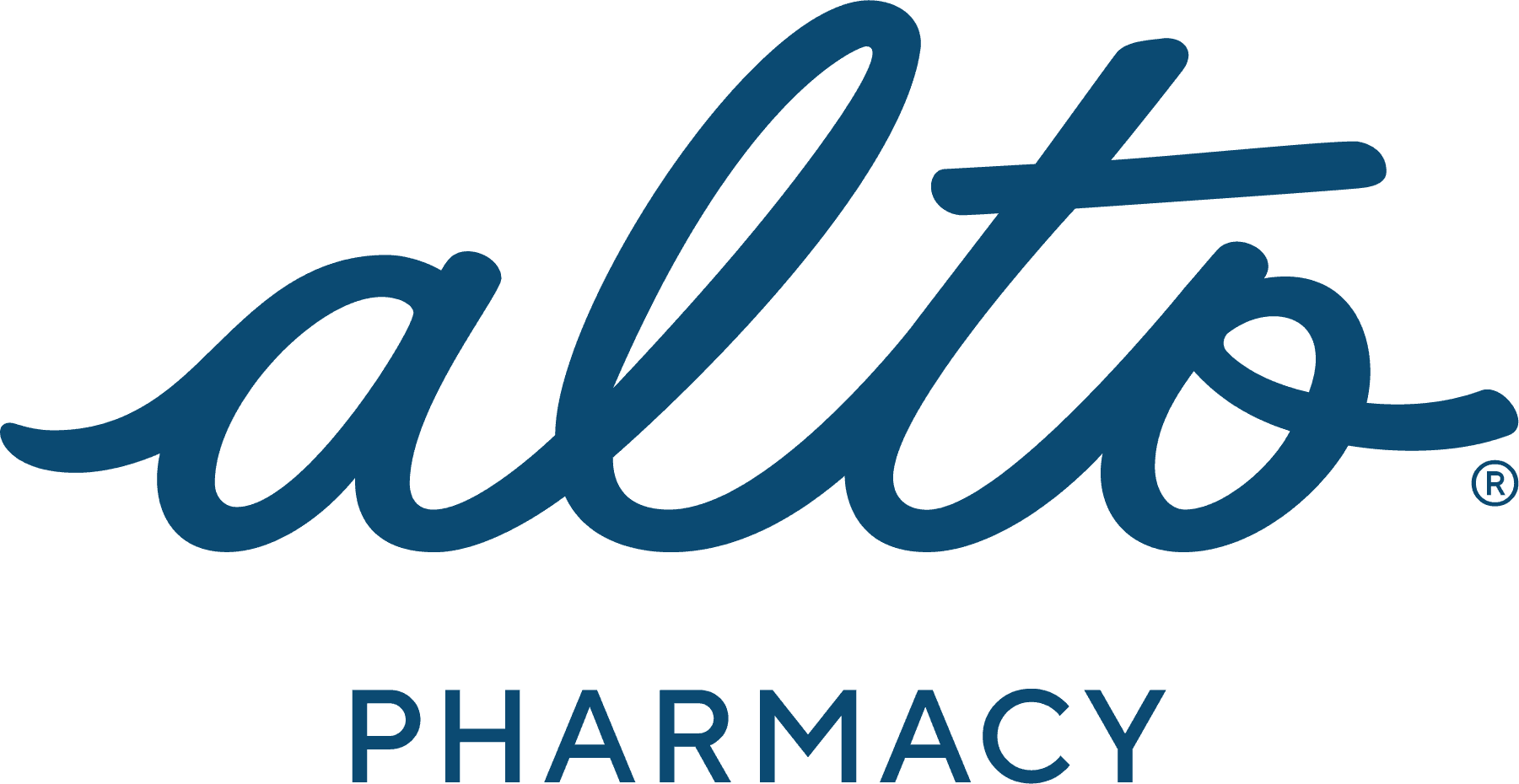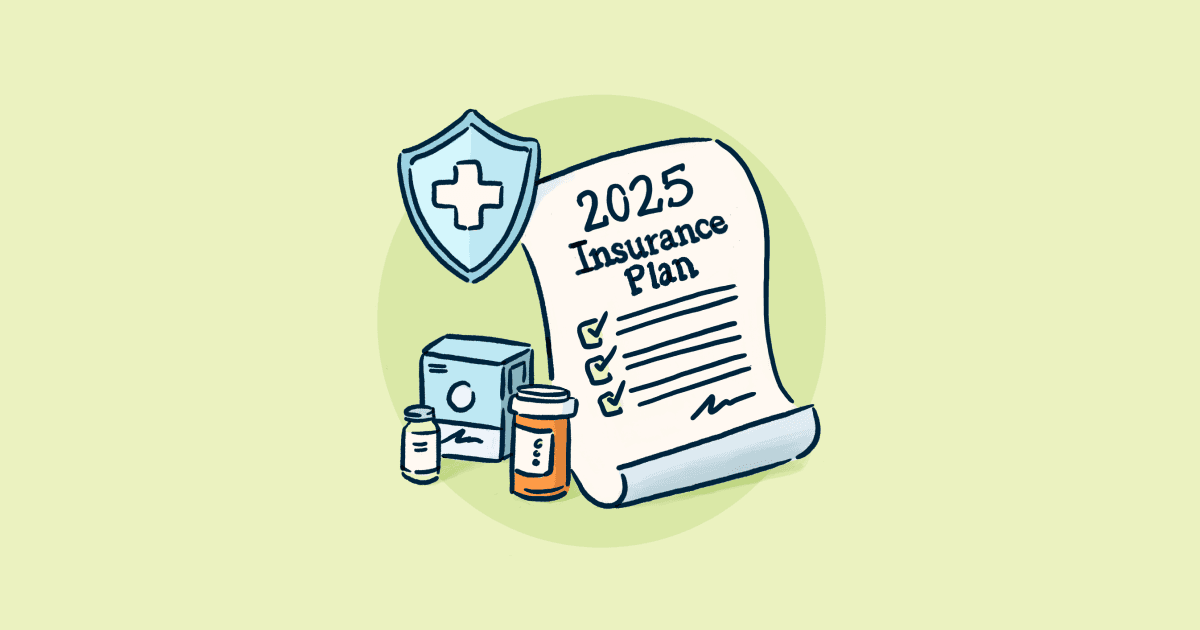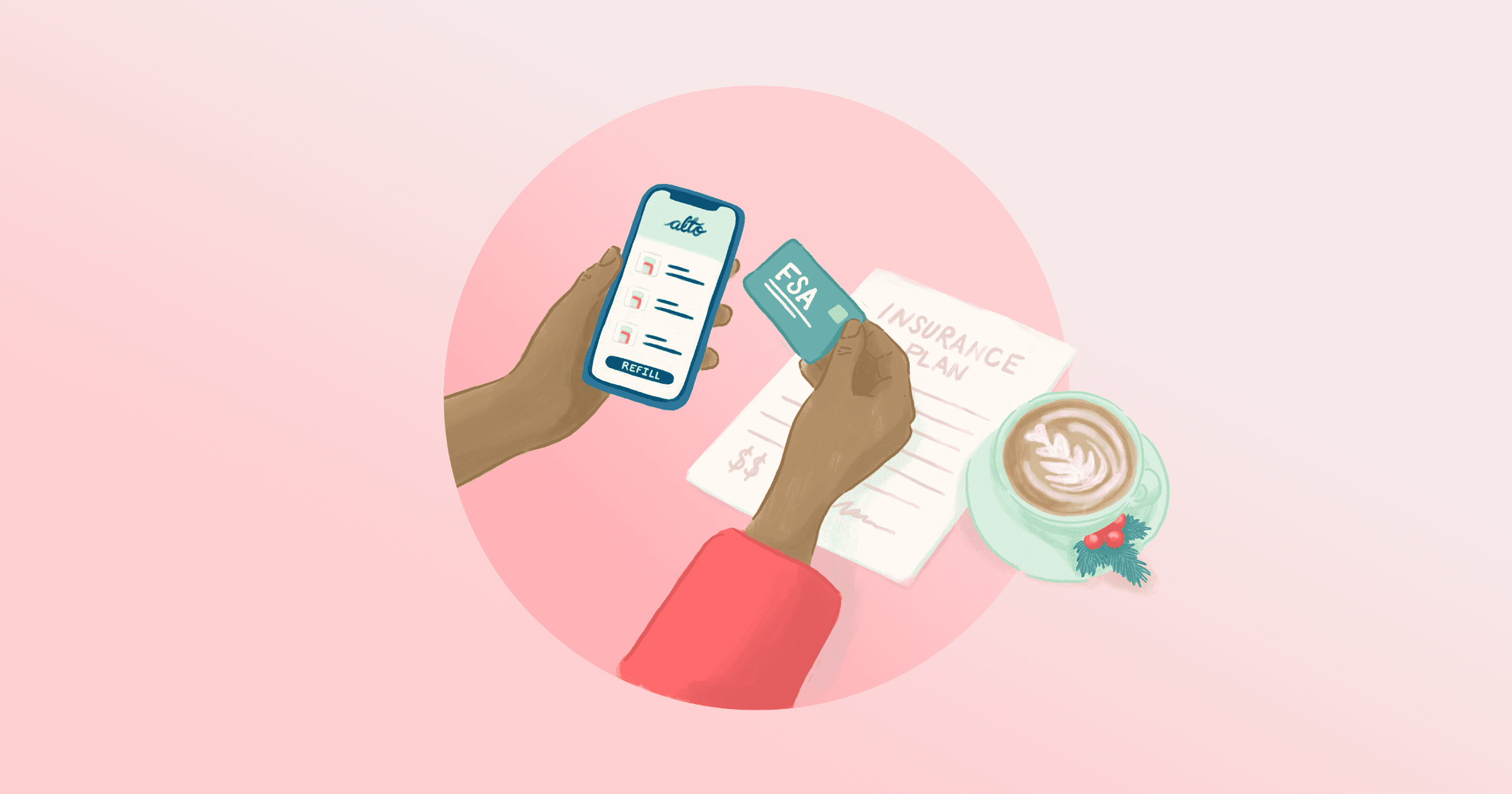How to Manage High Cholesterol With a Healthy Diet and Medications
Aug 21, 2021
By
Alto Pharmacy
Cholesterol isn’t inherently bad. Your body needs the waxy, fat-like substance to produce cell membranes, hormones, and nutrients like vitamin D. But too much of it — especially low-density lipoproteins (LDL) cholesterol, which accumulates in the walls of your blood vessels and is also referred to as “bad” cholesterol — can increase your risk for heart disease and stroke.
The good news? High cholesterol is one of the heart disease risk factors that you have control over. There are many changes you can make to bring down your cholesterol levels, which in turn will strengthen your overall cardiovascular health. Here’s an overview of how to manage high cholesterol through a combination of diet, lifestyle changes, and medication.
How to lower cholesterol levels with diet
There are two sources of cholesterol: your liver and the foods you eat. This means that you can begin to lower your cholesterol simply by paying attention to your diet and limiting high-cholesterol foods.
There are several categories of high-cholesterol foods to pay attention to. Saturated fats, which are typically solid at room temperature, increase levels of LDL cholesterol in your blood. You don’t have to avoid saturated fats altogether, however you should try to decrease your consumption of them. The American Heart Association suggests aiming for a diet in which 5-6% of the total calories consumed come from saturated fat. Common sources of saturated fats include red meat and full-fat dairy products.
Trans fats, also known as partially hydrogenated oils, are mainly formed through an industrial process which causes oil to become solid at room temperature. These fats are considered the least healthy to eat and should be avoided altogether as much as possible. While the Food and Drug Administration has banned food manufacturers from adding trans fats to foods, it’s still a good idea to check the label of the following foods for partially hydrogenated oils (how trans fats appear on nutrition labels):
Cookies, cakes, and other baked goods, including frozen products
Snack foods like microwaveable popcorn
Fast food
Refrigerated dough products
Vegetable shortening and margarine
On the other hand, unsaturated fats — found in plant-based oils such as olive oil and canola oil as well as tree nuts like almonds, walnuts, and pecans — can lower high cholesterol levels. Omega-3 fatty acids — found in fish like salmon, mackerel, herring, and tuna — and soluble fiber — found in beans, peas, lentils, oats, and whole grains — will round out a low-cholesterol diet.
Prioritize a heart-healthy lifestyle
Other lifestyle changes can significantly lower your LDL cholesterol levels naturally, including exercising regularly, maintaining a healthy weight, avoiding cigarette smoke, and limiting your alcohol consumption.
Exercise
Moderate physical activity can help lower LDL cholesterol and increase high-density lipoprotein (HDL) cholesterol, or “good” cholesterol. Aim for about 30 minutes of moderate to intense exercise per day. Everyone’s fitness needs are different, and it’s okay to start slower and work your way up to more vigorous activity.
Maintaining a healthy weight
Being overweight or obese increases your levels of LDL cholesterol, since excess body fat impacts your body’s ability to clear LDL cholesterol from your bloodstream.
Doctors may calculate your body mass index (BMI) to determine if your weight is in a healthy range. Consult your doctor about what a healthy weight is for you, and work together on a diet and fitness plan to help you reach and maintain that weight.
Smoking cessation
Smoking when you have unhealthy cholesterol levels increases your risk of heart disease even further. In addition, both smoking and vaping lower HDL cholesterol. Quitting can both lower your LDL cholesterol (bad) and increase your HDL cholesterol (good) levels.
If you currently smoke, ask your doctor for smoking cessation resources such as nicotine replacement therapy (NRT), which reduces withdrawal symptoms. If you are a nonsmoker, try to avoid exposure to secondhand smoke.
Limiting your alcohol consumption
Too much alcohol can increase your cholesterol levels, so it’s important to limit your intake as you work on managing your cholesterol. The CDC recommends no more than two drinks per day for men and no more than one for women.
How to manage high cholesterol with medication
For some people, diet and exercise may be enough to manage cholesterol levels. In other cases, medication may be necessary to lower LDL cholesterol levels, increase HDL cholesterol levels, or both. There are several different classes of cholesterol medications. Your doctor can advise you on the best option for your needs.
Statins
Statins, also known as HMG CoA reductase inhibitors, act on the liver to prevent cholesterol from forming and limit the overall amount of cholesterol circulating in your bloodstream. They are most effective at lowering LDL cholesterol but can also help increase HDL cholesterol and lower triglycerides, or blood fats.
Commonly prescribed statins include:
Atorvastatin (Lipitor®)
Fluvastatin (Lescol®)
Lovastatin (Mevacor®, Altoprev™)
Pravastatin (Pravachol®)
Rosuvastatin Calcium (Crestor®)
Simvastatin (Zocor®)
Possible side effects include:
Muscle pain
Increased blood sugar levels
Constipation
Nausea
Diarrhea
Stomach pain
Cramps
Elevation of liver enzymes
In most cases, side effects are mild and often disappear as your body adjusts to the medications. Your doctor may order tests on liver function, but liver abnormalities are rare. Statins are not safe to take if you are pregnant or you have chronic liver disease.
Cholesterol absorption inhibitor
Ezetimibe (Zetia®) is a cholesterol absorption inhibitor and the most commonly used non-statin cholesterol medication. Potential side effects include:
Stomach pain
Diarrhea
Fatigue
Muscle soreness
This medication is not safe to take during pregnancy or while breastfeeding.
PCSK9 inhibitors
PCSK9 inhibitors bind to a protein found in liver cells to lower LDL cholesterol. They are administered as injections every 2-4 weeks. Commonly prescribed medications in this class include:
Alirocumab (Praluent®)
Evolocumab (Repatha®)
The primary side effect is itching, swelling, pain, or bruising at the injection site.
ACL inhibitors
ACL inhibitors act on the liver to block cholesterol production. They are often taken in combination with statins to help further lower LDL in people with heart disease and people with familial heterozygous hypercholesterolemia, a genetic condition that causes high LDL cholesterol.
Commonly prescribed ACL inhibitors include:
Bempedoic acid (Nexletol®)
Bempedoic acid and ezetimibe (Nexlizet®)
There are several additional medication classes which are not as commonly prescribed but do have a proven mild LDL-lowering action, including fibrates and niacin.
Fibrates
Fibrates are primarily used to lower blood triglyceride levels, however they may also be used to raise HDL and lower LDL cholesterol.
Commonly prescribed fibrates include:
Gemfibrozil (Lopid®)
Fenofibrate (Antara®, Lofibra®, Tricor®, and Triglide™)
Potential side effects include nausea, stomach pain, and muscle pain.
Niacin (nicotinic acid)
Niacin is a B vitamin that reduces the liver’s production of blood fats. It is very effective at lowering triglycerides and is sometimes prescribed to lower LDL cholesterol.
Niacin comes in prescription form and as a dietary supplement. The latter is not a replacement for a prescription, and it’s important to only take niacin if your doctor has prescribed it.
Liver function should be closely monitored while taking niacin. If you have diabetes, it’s important to discuss the potential risks and benefits of niacin with your doctor, as it can raise blood sugar levels.
Check your cholesterol regularly
There often are not any visible signs or symptoms of high cholesterol, so the only way to determine your cholesterol levels is through a simple blood test called a lipid profile.
Most adults who are in good health have their cholesterol checked every four to six years. If you have heart disease, diabetes, or a family history of high cholesterol, you will need more frequent screening. Consult with your doctor about recommended screening frequency.
Exceptional pharmacy care to strengthen your health
At Alto, we’re committed to making it as simple as possible to stay on top of your cholesterol-lowering medications. We offer same-day delivery and medication management tools like reminders and auto refills in our app. And our team of pharmacists are always here to answer your questions by phone, text, or chat, and will even remind you when your medications are due for a refill.
This content is not intended to be a substitute for professional medical advice, diagnosis, or treatment. Always seek the advice of your physician or another qualified health provider with any questions you may have regarding a medical condition.
All third party trademarks (including logos and icons) referenced by Alto Pharmacy remain the property of their respective owners. Unless specifically identified as such, Alto’s use of third party trademarks does not indicate any relationship, sponsorship or endorsement between Alto and the owners of these trademarks.

















